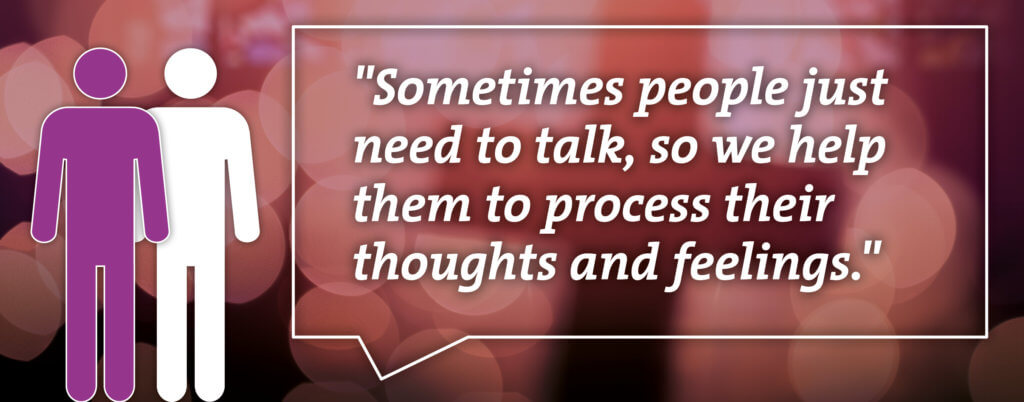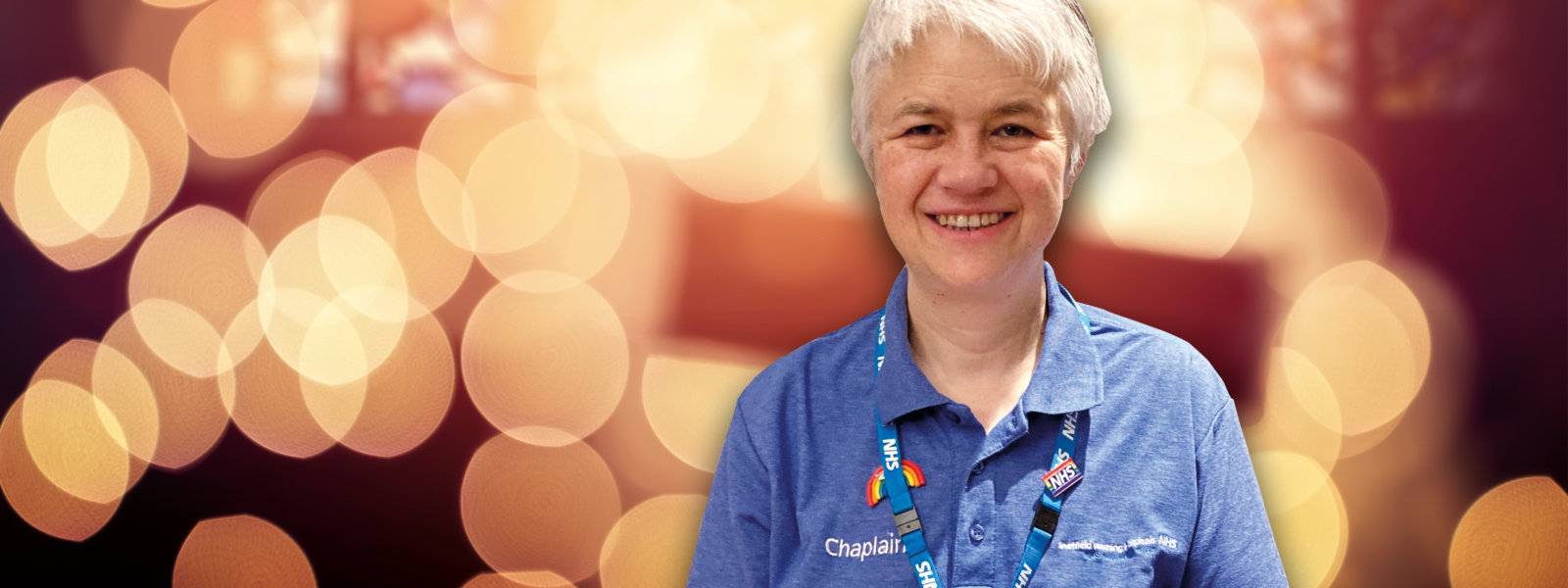A special kind of support
Amongst the doctors, nurses and other medical staff at hospitals around the UK, a unique group of professionals spend their time supporting people in an important – but often misunderstood – way.
Mary Ferguson spoke to hospital chaplain Fran Kissack to find out more about how she and her colleagues care for patients and their families.
Fran has been a chaplain for nearly 20 years and has spent the last five at the Royal Hallamshire Hospital in Sheffield, where she supports the specialist pulmonary hypertension unit alongside other departments.
Hospital chaplains are salaried NHS employees. Their role is to provide emotional and spiritual support, or simply a listening ear, to patients, their relatives and friends, and hospital staff too.
This support is for anyone, whether they have a faith or not. “It is a common misconception that we are only there for religious people”, says Fran. “We are there for everybody, and we try to support them in whatever way they need us to. Sometimes people just need to talk, so we help them to process their thoughts and feelings.
“Some people do want to pray with us, but very many of those we support don’t have a faith.
With chaplaincy, it’s about holistic care. When you’re in hospital, your wellbeing needs to be supported as well as your physical health needs.”
Fran is also keen to stress that the role of a chaplain is to support someone in the way that they need, and that it’s not about imposing views upon them.

“What we think isn’t important, it is all about what they think is important. And the support is more about listening than talking; we are not there to be trained counsellors and deliver therapy.”
This type of support is known as ‘active listening’ and it’s something that chaplains are well-placed to do, especially when busy hospitals may limit the time of others.
Anther common misconception is that chaplains are there only to support people nearing the end of life, but Fran insists this simply isn’t the case.
“I understand that some of the early NHS hospital chaplains were given a list of everyone who was dying, and their job was to go round and see them. Our role has changed a lot in the last 70 years, but unfortunately, some people still think that is what we do. Often, they think our role is to deliver bad news, but that’s not our job. We are there to help and support people in whatever way they need us to.”
For some patients, this help simply involves having access to an independent and impartial ear – and the chaplaincy service gives them the opportunity to discuss things they feel unable to with family and friends.
“You might not want to talk to your close relatives about how you really feel because it might upset them, and vice-versa”, says Fran. “This can create a conspiracy of silence about what’s happening, but as chaplains we can support both parties to be able to talk to each other.”
For other people, a chaplain’s value may liein providing a guiding light during spiritual distress.
“Our strapline in Sheffield is ‘presence, understanding, hope’. It may be that people want to talk about their hopes and fears, or how what’s happening to them fits with their worldview. We are there to support them if they have a sense of not knowing what’s happening to them, and where they are going. You could sum it up as a ‘search for meaning’ but it’s so much more than that.”
All chaplains dress differently, but Fran chooses to wear a polo shirt – and she believes it helps that as a chaplain you are an alternative face in a medical environment.
“I don’t know the answers to the medical questions, and I don’t pretend to know”, she says. “We are differentfrom medical care, and that’s important.”
Patients can choose to see a chaplain as often as they like during their stay, and Fran never gets offended if that is only once – or perhaps not at all.
“It is entirely your choice whether you see myself or my colleagues. You can say ‘not today’ or ‘never again’, although some patients do see to us regularly. If they are religious, we will support their religion, for instance by saying prayers with them.”
Whilst end of life support is just a small part of what hospital chaplains offer, it is nevertheless an important element of their role. At Sheffield Teaching Hospitals NHS Trust, Fran’s team is on call 24/7 to be with people in their last moments or in other emergency situations – and this can be a huge comfort for family members too.
Ultimately, chaplaincy forms part of an holistic model of care that addresses more than just the physical – and Fran says there is even evidence that if your general wellbeing is supported, you will get back home sooner.
“When you go into hospital it can be a scary experience”, she adds. “You can often lose your privacy, dignity, and the ability to be in touch with your family – so having somebody to support you with that is really important.”
If you would like to speak to a chaplain whilst you’re in hospital, and it hasn’t already been offered to you, then do not be afraid to ask staff on the ward to arrange this for you. You can also contact hospital chaplaincy teams through the hospital switchboard.
Although all UK hospitals have a chaplaincy service, the size of the provision may vary. Patients are often able to request chaplaincy in line with their religion, and if that is not possible, connections may be made with a faith group who can provide support.
















